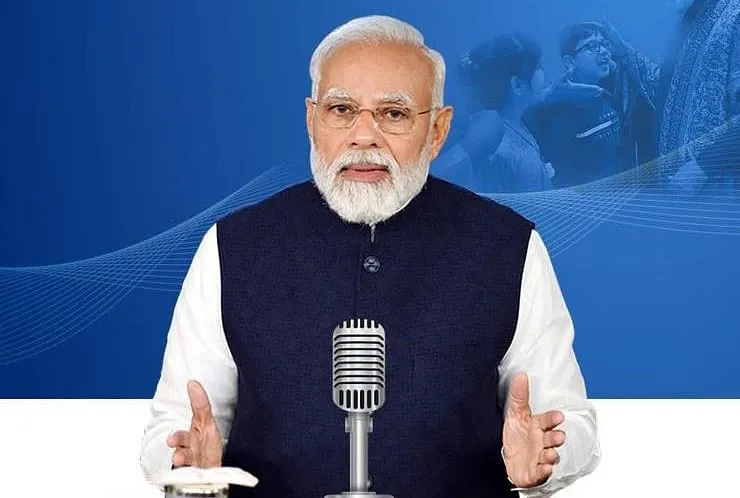Prime Minister Narendra Modi chaired a special meeting of the United Nations Security Council (UNSC) on “Enhancing Maritime Security: A Case for International Cooperation”. India is currently a non-permanent member of the UNSC and has its rotating presidency for the month of August. In this capacity it decided the UNSC agenda for the month in consultation with other member-states. Its decision to discuss maritime security was timely but what gave India’s decision a special global profile was Modi’s initiative to personally chair the meeting. In a gesture to Modi, Russian President Vladimir Putin and the US Secretary of State Antony Blinken participated in the meeting too.
Modi has focussed on maritime issues more than his predecessors. This has been timely for India’s maritime neighbourhood, both immediate and extended, is becoming complex but inadequate attention is, as yet, given to it. The reasons lie both in history as well in the security challenges faced by the country since independence.
Traditionally India has conceived itself as a continental power despite a coast line of over 7500 Kilometres. This derives from history because the centre of gravity of power in the Indian sub-continent as a whole has generally resided in the northern parts. These areas were distant from the seas which surround India. Hence, there was a lack of consciousness of the seas and the challenges that arose from them and opportunities that they offered. At the height of Mughal power, the ruling class never thought of developing a navy though by that time Portuguese had fully consolidated themselves in Goa on the strength of their ocean-going vessels. Other European states too had also established trading centres in India on the basis of their seafaring prowess. Further, members of the Mughal ruling family going on the Hajj were vulnerable to pirates but that too did not lead to a consideration of the significance of the seas and oceans.
Some of the southern coastal states did have a sense of the importance of the seas. This is reflected in the commercial and cultural connections that were established between India and South-East Asia both in ancient as well as medieval times. The cultural contacts are still alive in many traditions of South-Eastern Asian states despite the centuries of western colonialism. What colonialism did accomplish was to interrupt these traditional connections between India and South-East Asia. The Modi government is paying special attention on reviving these contacts.
The challenges to India’s security after independence have come across land borders. Hence, the political and strategic classes have paid greater attention to the defence of the land frontiers. However, over the decades the Indian Ocean has also become an arena where major world powers have increased their presence. The latest to do so are the Chinese who have a very ambitious programme to develop their naval strength. India has therefore necessarily got to divert greater mind space and resources to the seas and oceans.
All in all, therefore Modi’s extra-ordinary decision to personally preside over the UNSC meeting was meant to profile the significance of maritime security in global affairs. It was also tosignal to the Indian public and especially the country’s strategic community to pay greater attention to the seas and oceans both for the security challenges that emanate from them as also the opportunities they provide for India’s development. Unfortunately, Modi’s address to the UNSC has not received the media attention it deserved on account of current domestic controversies as well as security situation in India’s western neighbourhood. It can only be hoped that in time that both the public and the strategic community will turn to Modi’s speech and generally to maritime issues.
Modi mentioned five points for the preservation of global maritime security. Three of these were such on which there is broad international consensus. These were: there should be no barriers to legitimate trade; that all countries must together combat non-state actors, such as pirates or terrorists, who imperil maritime security through their actions; that their should be international cooperation to handle natural disasters impacting human populations through the seas; that there should not be an over exploitation of maritime resources and that the maritime environment should be preserved from man made disasters such as oil spills or the spread of plastics which is devastating marine life.
The two other points that Modi raised were entirely legitimate but have become contested over the past decade on account of Chinese actions. These are, one, that the settlement of maritime disputes between countries should be on the basis of international and, two, that maritime connectivity infrastructure being constructed by major powers in smaller countries should be such as not to make the recipient state indebted or lose control over its own resource or the infrastructure. China has shown complete disregard to the decisions of international tribunals in its disputes with other countries on islands and areas in the South China Sea. China is also aggressively building ports and other maritime infrastructure on the basis of loans which some countries, like for instance Sri Lanka, are unable to repay. This is leading to China virtually gaining extraterritorial rights in respect of that infrastructure.
Predictably, Russia steered a neutral course in the discussion. While Putin called for the observance of international norms, he said that disputes should be settled through dialogue. However, Blinken strongly criticised China’s disregard of international norms and its aggressive behaviour on maritime issues. This was refuted by the Chinese.
There is great need for true global cooperation on maritime security but it is likely that this too like most international issues will fall prey to the growing Sino-US rivalry.







